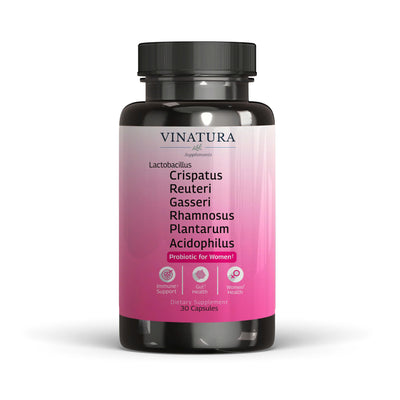
When Is The Best Time To Take Maca Root For The Best Results?
Maca root, hailed as a superfood for its numerous health benefits, has garnered attention worldwide. From enhancing energy levels to promoting hormonal balance, this Peruvian root has become a staple in many people's wellness routines. But when is the best time to take Maca root and reap its full potential?
Let's delve into a time-by-time analysis based on available research to determine the optimal timing for consuming Maca root supplements.
Before exploring further, please read the disclaimer located at the end of this webpage.
Maca Root And Its Effects On Health

Maca root, scientifically known as Lepidium meyenii, is packed with essential nutrients and bioactive compounds.
Traditionally used for its adaptogenic properties, Maca has been linked to various health benefits, including increased energy, fertility, hormonal balance, enhanced libido, cognitive function, bone health, and various benefits for both men and women [1].
Additionally, research suggests that Maca may relieve menopause symptoms and protect against UV radiation damage when applied topically [2].
When To Take Maca Root?
Taking Maca Root In The Morning

Starting your day with Maca root can offer a significant nutrient boost, as it is rich in vitamins, minerals, and antioxidants, fueling your morning routine with sustained energy.
For those experiencing menopause symptoms like irritability, hot flashes, or mood swings, incorporating Maca root into their morning regimen may bring relief, as research suggests its potential to alleviate these discomforts [3].
Additionally, while oral consumption of Maca root may not directly shield against UV radiation damage, applying topical Maca now in the morning can provide extra sun protection, reduce the risk of sun damage and premature aging, and protect skin all day [4].
Taking Maca Root In The Afternoon

Although there is limited specific research on the benefits of taking Maca in the afternoon, individuals who experience a mid-day slump may find it advantageous for its potential to provide an energy boost.
Maca root is a popular natural supplement for boosting energy levels and anti-fatigue [5].
This makes it an ideal choice for an afternoon energy boost. Adding Maca to your routine may help you stay alert and productive throughout the day.
Taking Maca Root In The Evening

Taking maca root at night may enhance its aphrodisiac effects for some individuals, leading to increased libido and sexual desire while also promoting relaxation before bedtime [6].
Additionally, although maca root doesn't contain caffeine or other stimulants, it can still boost energy levels, making it a suitable option for those working at night or needing an extra energy boost during evening activities, it may enhance sexual arousal and performance at night.
What Is The Best Time To Take Maca Root?
Although there is no designated time to take Maca, the recommended dosage time was in the morning and evening, based on previous research.
According to the study "Use of Gelatinized Maca (Lepidium peruvianum) in Early Postmenopausal Women", women taking two capsules some 30 minutes before the morning and 2 capsules before the evening meal for the period of either one-month.
Placebo followed by two months, 42% of participating women have reported a reduction in the feeling of menopausal discomfort already after one month.
Another study about Maca's Inflammatory on Male Elite Athletes also instructed participants to take Maca twice a day in the morning and evening for eight weeks with pure water.
The results showed that maca supplements effectively improved physical fitness and reduced inflammation [7].
However, individual responses to maca root can vary, so it's essential to experiment with different timing strategies to determine what works best for you.
Consider trying a two-week trial of taking maca root every morning and repeating the experiment with evening consumption.
By noting how you feel during each trial, you can uncover the timing that yields the most favorable results for your energy levels, libido, and overall well-being.
When To Stop Taking Maca Root?

Unlike some supplements, there's no specific time to stop taking Maca root.
It's generally safe for daily consumption, and individuals can continue incorporating it into their routine as long as they desire [8].
However, if you experience any adverse effects or notice significant energy boosts, consider adjusting your dosage or consulting with a healthcare professional.
Furthermore, women should stop taking Maca root if they are pregnant.
What Happens When You Stop Taking Maca?
Since Maca's benefits are often cumulative, some individuals may notice a gradual decline in the improvements they experienced while taking Maca, such as increased energy levels, improved mood, or enhanced libido.
However, the exact effects of discontinuing Maca can vary depending on individual factors such as dosage, duration of use, and overall health status.
Maintaining a balanced lifestyle, including a healthy diet, regular exercise, and adequate sleep, can help support overall well-being even after discontinuing maca supplementation.
Who Shouldn't Take Maca Root?
While maca root is considered safe for most individuals, specific groups should exercise caution or avoid its use altogether:
- Pregnant or breastfeeding women: Due to limited research on Maca's safety during pregnancy and lactation, it's best to avoid it.
- Children: Since research on Maca's effects on children is limited, it's advisable to consult a healthcare professional before giving it to children.
Frequently Asked Questions
How Should I Use Maca To Get The Best Results?
To get the best results from Maca, consuming it daily in the form of capsules or powder is recommended. The standard dose ranges from 1500 mg to 3000 mg. It is best to take it in the morning, preferably with breakfast or about 30 minutes before. However, before starting any new supplement regimen, it is always essential to consult a healthcare provider.
Can I Take Maca Root On An Empty Stomach?
There is no clear evidence that taking maca root on an empty stomach is harmful. However, some prefer consuming it with meals to prevent digestive discomfort.
What Happens If I Take Maca Three Times A Day?
Taking Maca three times daily may enhance its benefits, such as improved mood and energy levels. However, it is essential to adjust the dosage or frequency of consumption as needed to avoid overstimulation.
Conclusion
Incorporating maca root into your daily routine can yield numerous health benefits, from increased energy to hormonal balance and enhanced libido. By understanding the best time to take Maca root and adjusting your dosage accordingly, you can optimize its effects on your overall well-being. Remember to listen to your body, consult with a healthcare professional if needed, and enjoy the transformative power of this remarkable superfood.
References
- [1] Chen, R., Wei, J., & Gao, Y. (2021). A review of the study of active components and their pharmacology value in Lepidium meyenii (Maca). Phytotherapy Research, 35(12), 6706–6719. https://doi.org/10.1002/ptr.7257
- [2] Myeong Soo Lee, Shin, B.-C., Eun Jin Yang, Lim, H.-J., & Ernst, E. (2011). Maca (Lepidium meyenii) for treatment of menopausal symptoms: A systematic review. Maturitas, 70(3), 227–233. https://doi.org/10.1016/j.maturitas.2011.07.017
- [3] Meissner, H. O., Kapczynski, W., Mscisz, A., & Lutomski, J. (2005). Use of gelatinized maca (lepidium peruvianum) in early postmenopausal women. International Journal of Biomedical Science : IJBS, 1(1), 33–45. https://www.ncbi.nlm.nih.gov/pmc/articles/PMC3614576/
- [4] Li, Y., Wang, S., Xin, Y., Zheng, M., Xu, F., Xi, X., Cao, H., Cui, X., Guo, H., & Han, C. (2018). Maca Cosmetics: A Review on Constituents, Therapeutics and Advantages. Journal of Oleo Science, 67(7), 789–800. https://doi.org/10.5650/jos.ess18012
- [5] Zhu, H., Xu, W., Wang, N., Jiang, W., Cheng, Y., Guo, Y., Yao, W., Hu, B., Du, P., & Qian, H. (2021). Anti-fatigue effect of Lepidium meyenii Walp. (Maca) on preventing mitochondria-mediated muscle damage and oxidative stress in vivo and vitro. Food & Function, 12(7), 3132–3141. https://doi.org/10.1039/d1fo00383f
- [6] Leitão, S., Cabrera, L., Larisa, L., Maysa Formigoni, Hernandez, R., Adriana Aparecida Droval, & Reitz, A. (2020). Medicinal effects of Peruvian maca (Lepidium meyenii): a review. Food & Function, 11(1), 83–92. https://doi.org/10.1039/c9fo02732g
- [7] Lee, E., Park, M., Kim, B., & Kang, S. (2023). Effect of Black Maca Supplementation on Inflammatory Markers and Physical Fitness in Male Elite Athletes. Nutrients, 15(7), 1618–1618. https://doi.org/10.3390/nu15071618
- [8] Gonzales-Arimborgo, C., Yupanqui, I., Montero, E., Alarcón-Yaquetto, D. E., Alisson Zevallos-Concha, Caballero, L., Gasco, M., Zhao, J., Khan, I. A., & Gonzales, G. F. (2016). Acceptability, Safety, and Efficacy of Oral Administration of Extracts of Black or Red Maca (Lepidium meyenii) in Adult Human Subjects: A Randomized, Double-Blind, Placebo-Controlled Study. Pharmaceuticals, 9(3), 49–49. https://doi.org/10.3390/ph9030049
Author

Product Disclaimer
Including an ingredient or study does not evaluate, endorse, or recommend any Vinatura product or any third-party product. Some ingredients discussed may not be used in any Vinatura product.
The content of the articles has not been evaluated by the Food and Drug Administration (FDA) and is not intended to promote or endorse any specific product. Any products sold on this website are not intended to diagnose, treat, cure, or prevent any disease.
Opinions and Endorsements
Any claims, statements, or opinions expressed in the articles are those of the author(s) and do not necessarily reflect the views or opinions of the manufacturers of the dietary supplement products. The products sold on this website are separate from the content of the articles and are not directly endorsed or associated with the information presented here.
Liability Disclaimer
The author(s) of the articles, website, and manufacturers of the dietary supplement products do not assume any liability for any potential consequences arising from the use of the information provided in the articles. Ingredient effects, dosages, and safety vary by individual, formulation, and context; some ingredients interact with medications or may be unsuitable during pregnancy or lactation. It is recommended that individuals consult with a qualified healthcare professional before making any dietary or lifestyle changes, including the use of dietary supplements.
Product Usage
Please refer to the product labels and packaging for specific usage instructions and guidelines for the dietary supplement products sold on this website.
Customer Support
For any concerns or questions regarding the dietary supplement products, please contact our customer support team, who will be more than happy to assist you.





Leave a Comment
Be the first to comment.
What do you think?